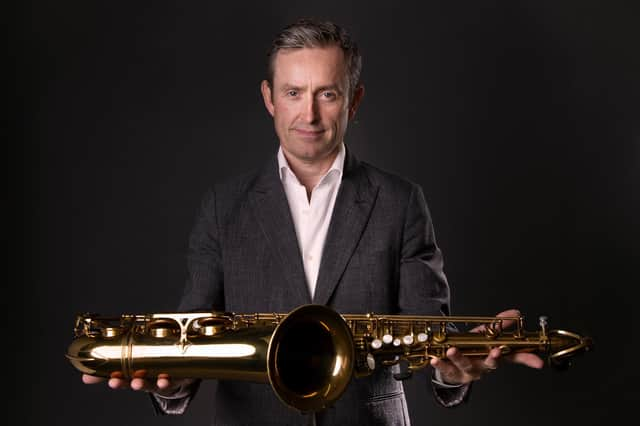Music review: SNJO and Kurt Elling, Queen's Hall, Edinburgh


Scottish National Jazz Orchestra & Kurt Elling Queen’s Hall, Edinburgh *****
Promising to “reconnect us all through music”, this performance proved indeed a jubilant reunion for the SNJO, not only with live audiences, but also with Grammy Award-winning jazz vocalist Kurt Elling.
Advertisement
Hide AdAdvertisement
Hide AdApparition Bridge, repeated on Saturday at Glasgow Royal Concert Hall New Auditorium and on Sunday at Aberdeen Music Hall, featured new arrangements and added lyrics to compositions by European jazz composers, continuing the philosophical questing which Elling and SNJO director Tommy Smith have pursued in previous collaborations. The American singer’s warm, octave-leaping baritone was omnipresent, singing or reciting, with lyrics occasionally obscured by the accompaniments, but it was the imperious clarion of Smith’s tenor saxophone which opened proceedings, bringing in Elling’s often impassioned vocals in an anthem-like orchestration by Brian Byrne, based on words by James Joyce.
Joe Zawinul’s Midnight Mood, arranged by Christian Jacob, cruised in elegantly ballroom swing-time, with Elling scatting energetically and trombonist Liam Shortall stepping up to the plate for a matchingly demonstrative solo. A Helge Sund arrangement morphed Jan Garbarek’s Molde Canticle into a tune by the late Esbjörn Svensson, the magisterial Garbarek theme given an oriental accent as Elling intoned visions of sand-bound ruins, with avian clarinet statements from Martin Kershaw over stealthy bass.
And so it flowed, with vivid dynamism, driven by the sterling rhythm section of pianist Pete Johnstone, bassist Calum Gourlay and drummer Alyn Cosker. Sean Gibb’s trumpet break phased neatly into Smith’s soprano sax in the Wheeler-Winstone composition Sea Lady, while Yvonne Robertson’s flute brought impressionist brushstrokes to Michel Legrand’s You Must Believe in Spring.
Elling’s incantations of Zen timelessness and a hallucinatory encounter with the afterlife in Lars Jansson’s Appleton bookended a very physical tenor sax solo from Konrad Wiszniewski – thoughts of the hereafter, couched in arresting music of the here and now.
A message from the Editor:
Thank you for reading this article. We're more reliant on your support than ever as the shift in consumer habits brought about by coronavirus impacts our advertisers.
If you haven't already, please consider supporting our trusted, fact-checked journalism by taking out a digital subscription at https://www.scotsman.com/subscriptions